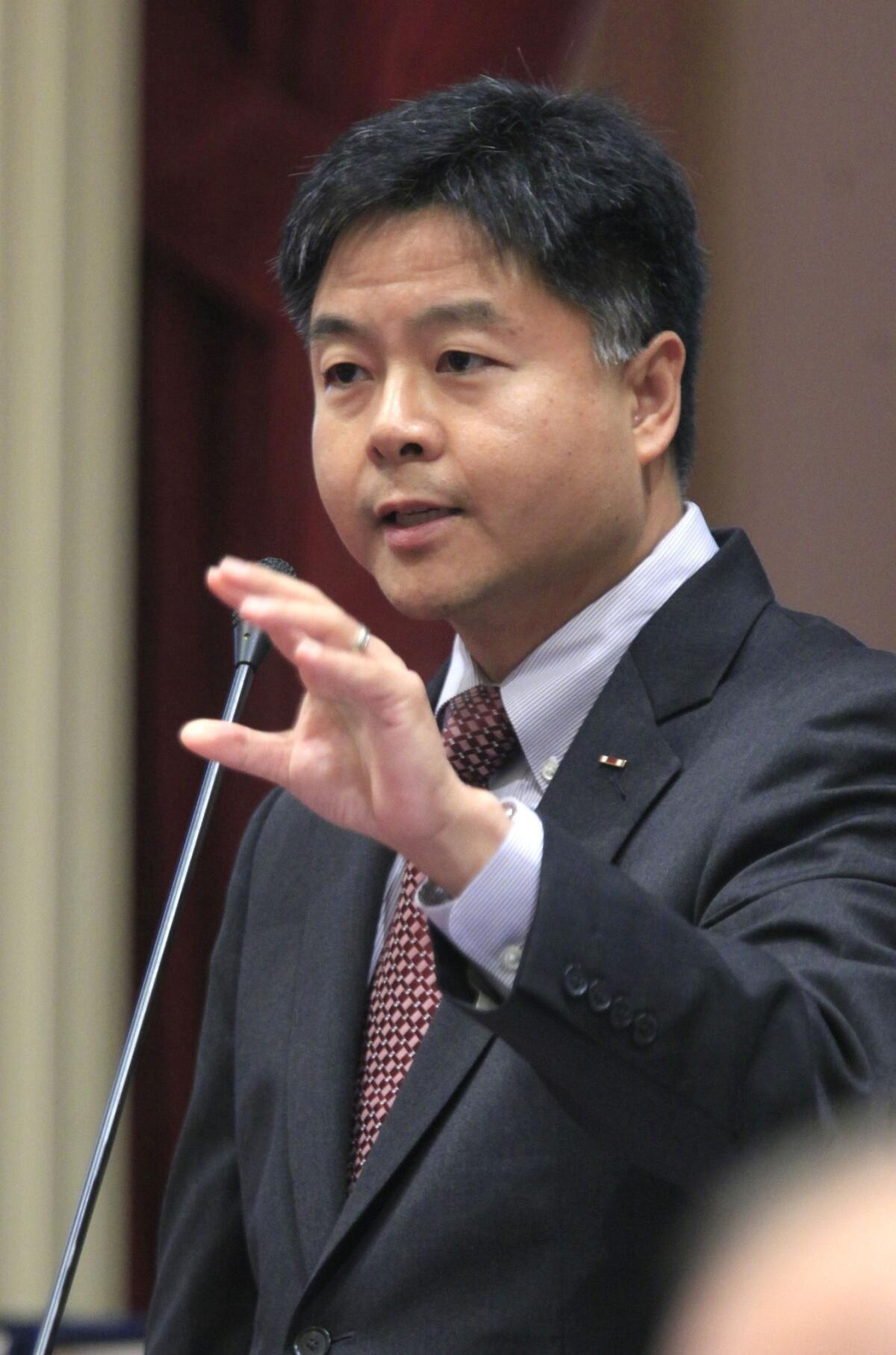Ban on therapy to ‘convert’ gay minors upheld

SAN FRANCISCO — California may enforce a new law that prohibits mental health professionals from trying to change a minor’s sexual orientation, a federal appeals court decided unanimously Thursday.
A three-judge panel of the U.S. 9th Circuit Court of Appeals concluded that the law does not violate the free speech rights of patients or professionals or the fundamental rights of parents. The state may prohibit treatment it deems harmful, the court said.
“Without a doubt, protecting the well-being of minors is a legitimate state interest,” wrote Judge Susan P. Graber, a President Clinton appointee.
The ban on so-called conversion therapy was supposed to have taken effect in January, but legal challenges blocked it. California was the first state in the country to pass such a ban, and New Jersey has since followed.
The Pacific Justice Institute, which advocates religious freedom, said the law would have “a chilling effect by placing clergy who are also licensed therapists in a legal quagmire.”
“This decision is a dark day for those who believe in the 1st Amendment and the rights of parents over the proper upbringing of their children,” said Brad Dacus, president of the institute. “Make no mistake, we are not finished in our efforts to overturn this outrageous legislation.”
Gay rights groups praised the ruling and predicted that the law would save lives.
Minors in California will now be protected from “cruel and damaging practices that have been rejected by all leading medical and mental health professional organizations,” said Shannon Minter, legal director of the National Center for Lesbian Rights, which represented Equality California in defending the law.
Therapy to change a person’s sexual orientation started at a time when the psychiatric profession considered homosexuality a disease, a belief that was abandoned in the early 1970s. Major psychological associations now consider the therapy ineffective and potentially harmful.
Techniques to make a gay person heterosexual have included induced vomiting, electric shock and even castration. Therapy today generally focuses on reframing a patient’s thought pattens, assertiveness training and reinforcement of heterosexual behavior.
The court said that communications during psychoanalysis were entitled to constitutional protection but still could be regulated.
“A regulation of only treatment itself — whether physical medicine or mental health treatment — implicates free speech interests only incidentally, if at all,” the court concluded.
The California law subjects mental health providers to discipline by their state licensing boards for treating minors for sexual orientation change.
Although parents have the constitutional right to decide the care, custody and control of their children, their rights are limited, the court said.
“The fundamental rights of parents do not include the right to choose a specific type of provider for a specific medical or mental health treatment that the state has reasonably deemed harmful,” wrote Graber, who was joined by Chief 9th Circuit Judge Alex Kozinski, a President Reagan appointee, and Judge Morgan Christen, a President Obama appointee.
The court stressed that the law would not prevent mental health professionals from expressing their views about conversion therapy or referring minors to unlicensed providers, such as clergy, or to out-of-state therapists for the treatment.
State Sen. Ted W. Lieu (D-Torrance), who wrote the law, said Thursday’s ruling demonstrated that the Constitution has never permitted “psychological child abuse.”
“Now the law has caught up to the truth: Sexual orientation is not a mental illness or defect, but rather the beautiful realization of what it means to be human,” Lieu said.
The law was challenged in two lawsuits before different federal judges in Sacramento.
One judge blocked the state from enforcing the law on those who sued, while the other judge refused. The 9th Circuit put the law on hold pending appeals.
More to Read
Sign up for Essential California
The most important California stories and recommendations in your inbox every morning.
You may occasionally receive promotional content from the Los Angeles Times.











